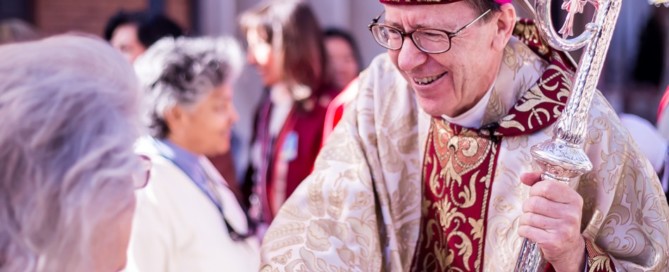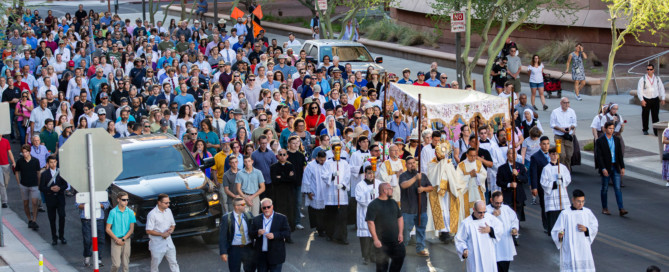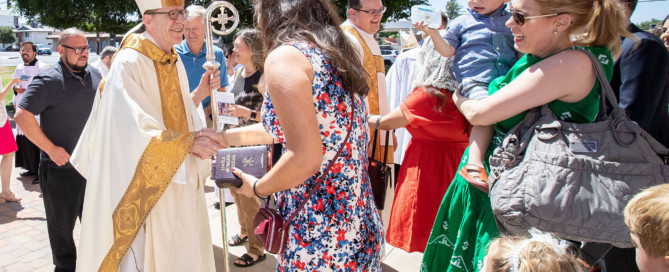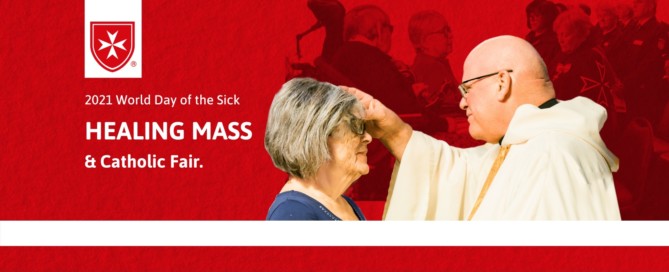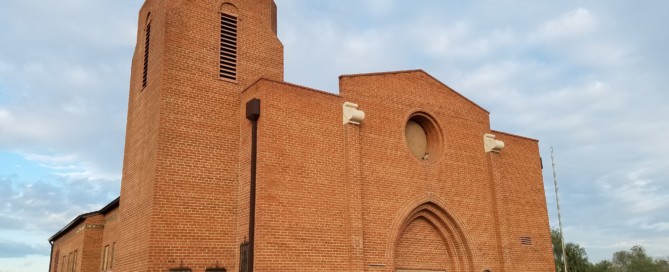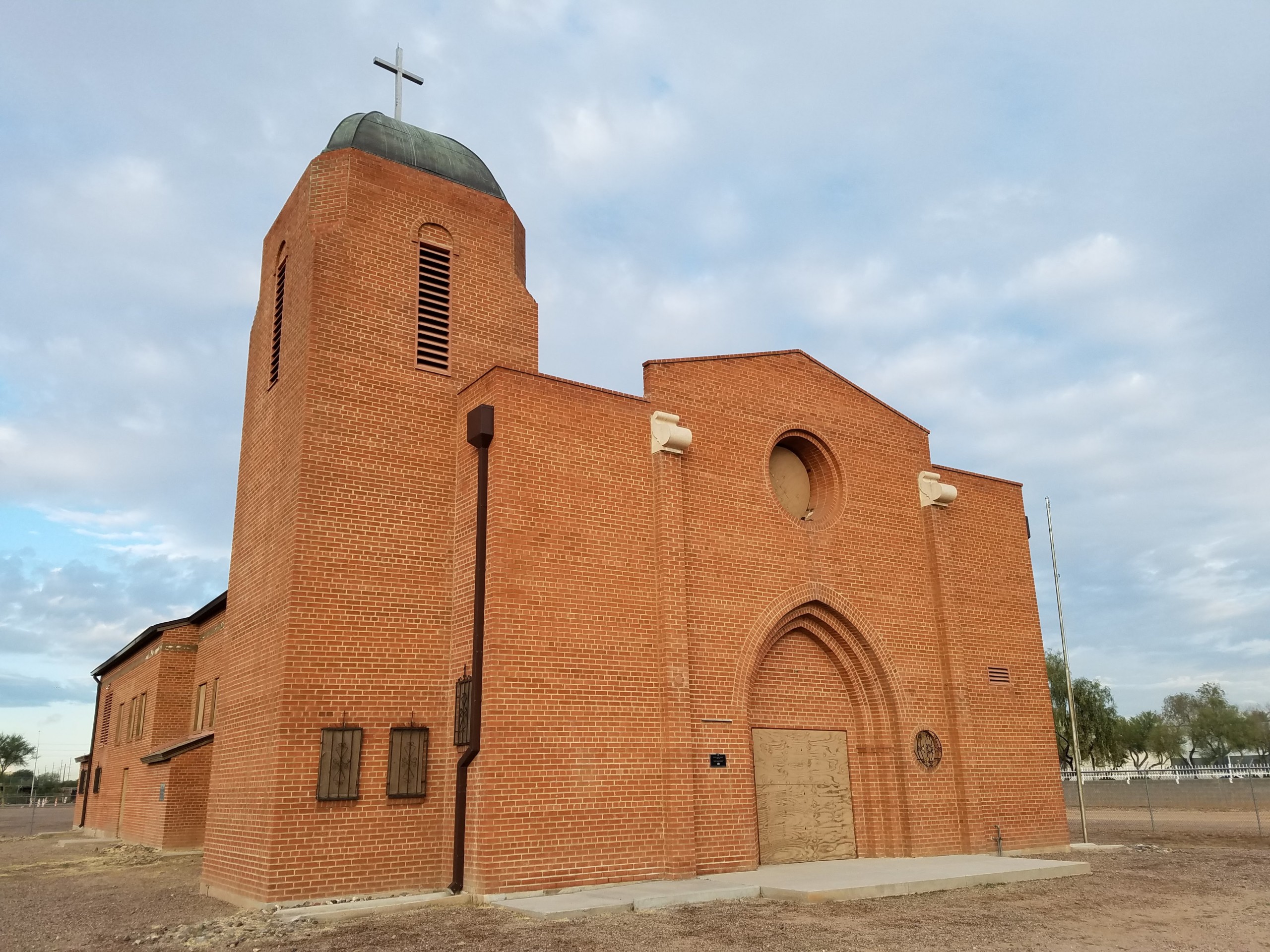Welcome to Our New Website!
Faith like a Mustard Seed
Faith like a Mustard Seed
June 13, 2021
Following is the prepared text from Bishop Olmsted’s homily for the 11th Sunday in Ordinary Time and the Groundbreaking of a new Rectory at St. Bernard of Clairvaux parish.
“Unless your righteousness surpasses that of the scribes and Pharisees, you will not enter into the Kingdom of heaven.” – Mt 5:20
Righteousness means right relationships – good rapport with your wife, your neighbor, your parents, your children, and God… Right relationships take work, daily efforts of honesty and patience, forgiveness and perseverance – doing little things with love from morning until night.
“The Kingdom of God is like a mustard seed.” – Mark 4:31 These words of Jesus remind us that right relationships like solid marriages and healthy parishes, and friendship with Jesus are built on what seems to the world too small to matter, unimportant and unworthy of notice. Not true.
In particular, right relationships require attentiveness to the truth. I recall receiving this advice for handling complaints, “Lie a little but not too much.” It sounds clever and funny; but not so. “Say yes when you mean yes and say no when you mean no. Anything else is from the evil one.” “Little lies” can quickly lead to dishonesty, to “not being true in good times and in bad.” We can forget the need we all have of saying even in small things, “I was wrong, I am sorry. Please forgive me.” Virtue and integrity are not built through big battles but through thousands of little efforts to be true to one another, whether noticed or not. Jesus says, “This is how it is with the Kingdom of God; it is as if a man were to scatter seed on the land and would sleep and rise night and day and through it all the seed would sprout and grow, he knows not how.” -Mk 4:30 The mustard seed is the smallest of all seeds – we can barely see it. And right relationships, including with God, are like that. Servant of God Dorothy Day wrote, “Most of our life is unimportant, filled with trivial things from morning till night. But when it is transformed by love it is of interest even to the angels.”
Today, St. Bernard’s Parish breaks ground to build a rectory – not something as important as building a church, but still a day for which we have waited a long time. It is not built to impress but to serve Jesus and His Kingdom, to provide a home where the priests can be nearer to those Jesus calls them to serve. It is built, after the church and the offices and parish hall, and built for the sake of facilitating the priests in their mission to give a Shepherd’s care to the faithful, day after day. The building of a rectory can remind us all to keep building right relationships in the ordinary events of life. The Lord tells us how (1 Cor 13:4f): “Love is patient, love is kind. It is not jealous, not pompous. It is not inflated. It is not rude. It does not seek its own interests…” That is what love looks like. That is how right relationships are built.
In today’s Second Reading (2 Cor 5:6-10), the Lord speaks of two other things that are pivotal for building right relationships: faith and courage. St. Paul writes, “…we walk by faith, not by sight. Yet we are courageous.”
Here on earth, we have no lasting home; we are on pilgrimage to the Father’s House, trusting in God at all times and keeping our hearts set on our destiny: “leaving the body and going home to the Lord.” (2 Cor 6:8) Any earthly home or rectory is temporary. Our real home is with the Lord. So, build up treasures in heaven. Do not live “by sight”, that is, not by appearances. Live by faith in the Lord.
“Yet we are courageous,” St. Paul insists. It takes courage to keep doing little things with patience anc love. Jessica Powers wrote, “The door to God, the door to any grace, is very little, very ordinary… all truth, all love are by humiliation guarded…” So, where does our courage come from? It comes from the Lord, who told the disciples at the Last Supper (Jn 16:33), “In the world you will have trouble, but take courage, I have conquered the world.” He conquers our fears when we put them in His hands.
The Book of Revelation says (Rev 12:11f), “They conquered [the accuser] by the Blood of the Lamb and by the word of their testimony; love for life did not deter them from death.” Our courage comes not from ourselves but from the Spirit and the Blood of the Lamb; that is, especially through the Sacraments of Confirmation and the Eucharist. With the help of the Holy Spirit, and the virtues of faith and courage, our relationships can be upright, even if it feels like our faith is weak. For Jesus says to us (Mt 17:20), “…if your faith the size of a mustard seed, you will say to this mountain, “Move from here to there,’ and it will move. Nothing will be impossible for you.”
Catholic Fathers Take a Walk With Christ in the Eucharist
Catholic Fathers Take a Walk With Christ in the Eucharist
From Joseph Pronechen with National Catholic Register.
Dads processing behind the Eucharist on Father’s Day.
A new movement is encouraging such processions.
“In this year of celebration of St. Joseph, we find the perfect time to inspire men to their noble call of being Catholic fathers,” explained Kevin O’Brien, executive director of Men of Christ. He is one of six co-founders of a new movement established by a large network of Catholic laymen from around the country to remake Father’s Day into Catholic Father’s Day (CatholicFathersDay.com).
The movement is meant to inspire Catholic men by holding annual Eucharistic processions on Father’s Day for Catholic families.
According to its goals, this movement aims to “gather Catholic fathers and their families together once a year in June to renew their commitment to the heroic call to be Catholic fathers and to give glory to God the Father, to proclaim their commitment to Jesus Christ through Eucharistic processions, to draw down the Holy Spirit to strengthen men in faith and to seek the intercession of St. Joseph, the patron saint of the Church, fathers and families.”
Bishop Olmsted announces lifting of the dispensation of the Sunday and Holy Day obligations effective July 1, 2021
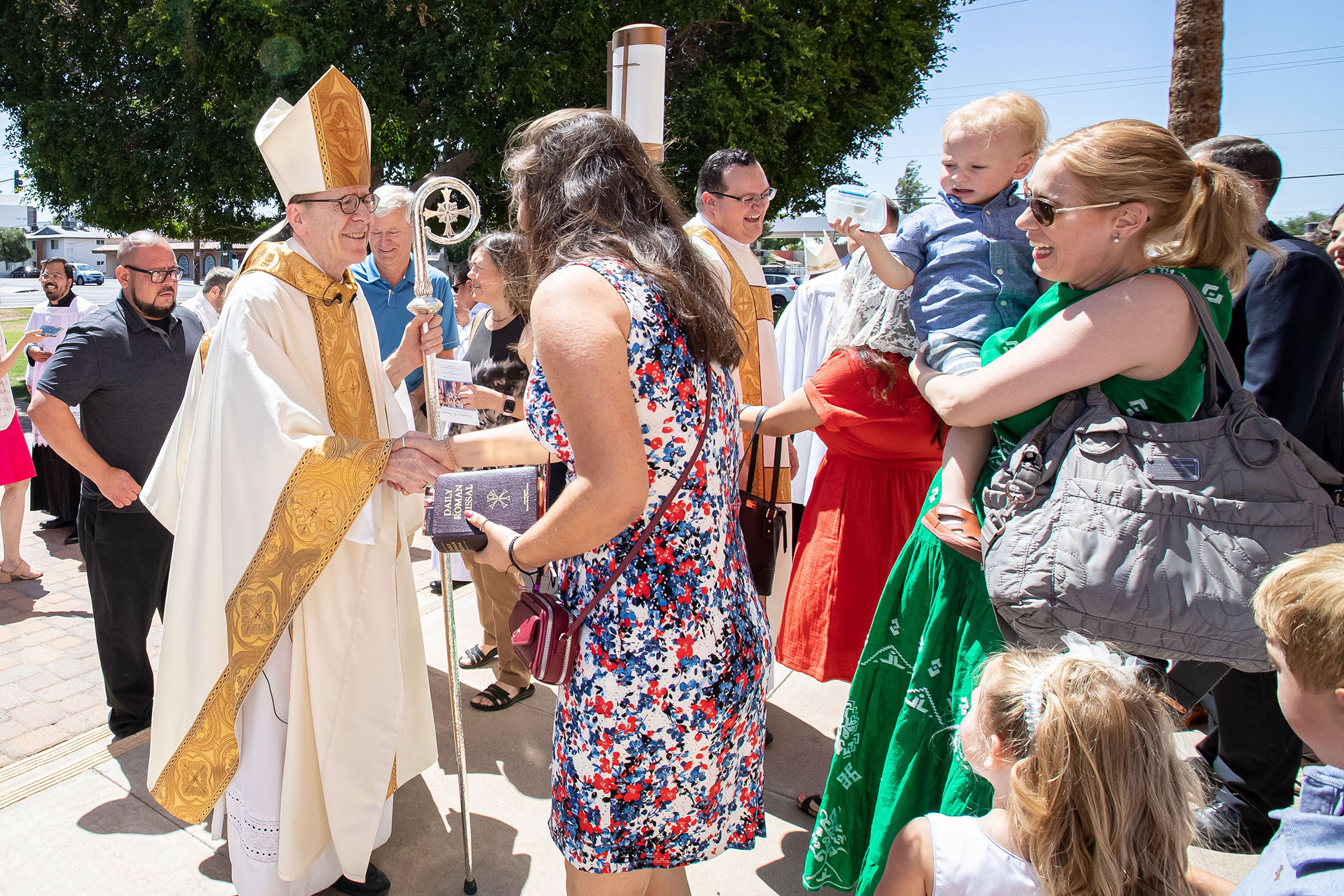
Bishop Thomas J. Olmsted greets churchgoers following Mass on May 30, 2021, at St. Thomas the Apostle Parish in Phoenix. (Billy Hardiman)
Bishop Olmsted announces lifting of the dispensation of the Sunday and Holy Day obligations effective July 1, 2021
The Most Holy Body and Blood of Christ
Dear Brothers and Sisters in Christ,
In the Gospel of Saint John, the Lord Jesus tells us, “If you love me, keep my commands.” Participation in Mass on Sundays is one of the most practical ways Catholics respond to the Lord’s love.
Therefore I wish to announce the restoration of the obligation for Sunday and holy day Masses in the Diocese of Phoenix, effective July 1, 2021. On this day we commemorate Saint Junipero Serra, the great missionary and evangelist. He is a shining example of the Church’s mission to announce the joy of the Gospel to all the nations.
Given the current status of the pandemic and the availability of vaccines, I believe it appropriate for the Church to take safe and sensible steps forward in our approach to Mass.
Why should Sunday Mass be an obligation for us? In my recent Apostolic Exhortation on the Eucharist, entitled Veneremur Cernui, I wrote:
The ultimate effect of the Holy Eucharist is not only the transubstantiation of bread and wine into the body and blood, soul and divinity of Jesus Christ for our spiritual nourishment, but the transformation of those who receive Holy Communion into “one body, one spirit in Christ.” Through this personal relationship with the Risen Jesus in the Eucharist, we experience the self-sacrificing love of Jesus, who invites us to imitate His love and to bring that love to everyone and every situation of our daily life. (41)
These words help us see that the law mandating Mass attendance is not simply an arbitrary imposition. The obligation arises from the natural demands of love, that those whom the Lord loves must be steadily transformed by His love by means of what He has instituted for our good. Sunday is a “little Easter” each week, the principal day for the celebration of the Eucharist. It is the central day for the celebration of His death and Resurrection (cf. CCC 1167).
Consider the human body. Lungs demand oxygen. The stomach obliges us to consume water and food. Our day is interrupted by the happy obligation to breathe and drink and eat. Likewise for Christ’s Body the Church: the obligation of attendance at Sunday Mass reflects our spiritual need to ingest the power of the Resurrection. Our days, weeks, and years are punctuated by the sweet demand that together at Mass we breathe and drink and eat the gifts of Christ’s grace.
Nevertheless, there are circumstances when a member of the faithful is “excused for a serious reason” (CCC 2181) from the obligation to attend Mass on Sundays and holy days. A serious reason occurs when one is physically or otherwise prevented from attending. For example, if a person is sick or unable to find reasonable transportation, the obligation no longer applies.
Given the current situation of the pandemic, further examples of this are the following:
- If you have been diagnosed with COVID-19 or have good reason to believe you have contracted it;
- If you are ill or have a condition that would seriously compromise your health if you contracted COVID-19 or another communicable disease;
- If you care for the sick, homebound, or infirmed and have a compelling reason for believing that you would infect them by going to Mass;
- If you are elderly or pregnant and have a serious reason to believe you would put yourself or your child at risk by attending Mass.
In applying this guidance, each person must make use of their good judgement. If someone is unsure, confused, or concerned about a situation not listed here please consult with any priest for clarity. The faithful are always called to the sacred duty to keep holy the sabbath day, so even if one cannot fulfill the Sunday obligation, all are encouraged to spend time in prayer, thanksgiving and rest on Sundays.
May today’s celebration of the Solemnity of the Most Holy Body and Blood of Jesus Christ, and the return of the Sunday obligation on July 1, provide a deep renewal of our love for Sunday Mass in the Diocese of Phoenix. I pray that we will all respond with great joy to the words of our loving Savior: “If you love me, keep my commands.”
Sincerely Yours in the Risen Christ,
+ Thomas J. Olmsted
Bishop of Phoenix
The Healing Jesus Gives
The Healing Jesus Gives
May 22, 2021
Following is the prepared text from Bishop Olmsted’s homily for the Order of Malta World Day of the Sick Healing Mass.
“They placed all those who were sick at the feet of Jesus, and He cured them” (Cf. Mt 15:30).
St. Damien of Molokai believed these words about Jesus; whoever is sick, Jesus can cure. Therefore, he volunteered to serve as a priest for the lepers of Hawaii 148 years ago this month, May 10, 1873. When he arrived in Molokai, he found chaos, filth and despair. There was no cure for leprosy; there were unburied corpses, inadequate housing, no running water, no system of public order or safety… only widespread alcoholism, quarreling and despair.
In addition, there were only a handful of Catholics. So, where did he begin? With the Eucharist.
After spending the first night sleeping under a tree, the only clean spot he could find, he invited the lepers to assist him in repairing the dilapidated church, its broken pews and kneelers, the shattered windows, the crippled altar and empty tabernacle. They repaired and cleaned the sacred vessels, collected soiled altar linens and cleaned them—preparing for the celebration of Mass, so that Jesus could be present on Molokai. What the lepers needed most was the presence of their Lord. Even if they did not yet believe in the Eucharist, Jesus would still be there, truly present with them, body and blood, soul and divinity.
Father Damien was guided by the two great commandments: first, love the Lord your God with all your mind and heart and strength; and second, love your neighbor as yourself. By loving God first, he brought the real presence of Jesus in the Eucharist to Molokai; each day, at Mass, he found his own spiritual sustenance and the strength to bring Jesus to the lepers and care for them – body, mind, and soul.
Thirteen years after his arrival, shortly before he himself died of leprosy, Father Damien wrote the following to his brother in Belgium, on August 26, 1886:
“Without the constant presence of Our Divine Master upon the altar in my poor chapels, I never could have persevered in casting my lot with the lepers of Molokai, the predictable consequences of which now begin to appear on my skin and are felt throughout my body. Holy Communion being the daily bread of a priest, I feel myself happy, well pleased, and resigned in the rather exceptional circumstance in which it has pleased Divine Providence to place me.”
Whoever goes to Lourdes on pilgrimage witnesses the words of the Gospel fulfilled: “They placed all those who were sick at the feet of Jesus, and He cured them” (Cf. Mt 15:30). At Lourdes, all are invited to bathe in the miraculous spring water. Far more importantly, they are welcomed to be freed of sin by Jesus in Confession, to receive Him really present in the Eucharist, and to join in prayer with His Blessed Mother.
The Lord Jesus brings healing to mind, body and soul – whichever healing best renews our hope and trust in Him. The source of healing at Lourdes and through the anointing of the sick is the presence of Jesus. Asking God’s healing for the sick fulfills a key part of the Church’s mission of bearing witness to Jesus and His merciful love. Through the holy anointing with the Oil of the Sick, Jesus offers the same healing and miraculous love that He offered to the paralytic carried to Him by four strong men in Capernaum, and it is instructive to remember that, prior to healing the man’s paralysis, Jesus brought him a more profound healing by forgiving his sins. Jesus loves us so much that He will always give us what we most need, because He cares for us entirely – body, mind, and soul.
Today, as we pray in Jesus’ Name for all the sick or elderly who have come here to be anointed or are one with us via television and other means, let us put all our trust in Jesus’ promise: “Ask and it will be given to you; seek and you will find; knock and the door will be opened to you.” He will answer our prayers. If the Lord does not give us the physical healing we seek, He shall give us something even greater. Father Damien provides us a good example: he prayed constantly for a cure to leprosy for those whom he served and then for a cure for himself after he contracted the disease. Still, he wrote his brother back in Belgium,
“I resign myself, however, to Divine Providence, and find my consolation in my only companion who never leaves me, – our Divine Savior in the Holy Eucharist. It is at the foot of the altar that… I seek comfort in my interior suffering. It is before Him, as well as before the statue of Our Holy Mother that I sometimes complain, while asking them for the restoration of my health.”
Jesus loves us; He hears our prayers, even when we complain. Wherever He is present, there is mercy, there is peace. He gives us whatever we need to come to full maturity in His Name. So, let us keep in mind the words of the Hymn:
“Be still, my soul: the Lord is on thy side… Leave to thy God to order and provide.”
By the time that Father Damien died, he had reached great heights of holiness; many of the lepers had been baptized and become faithful followers of Christ; a second church had been constructed on Molokai, as well as two beautiful cemeteries. Mother Marianne Cope, now a canonized saint, had come with her Franciscan Sisters to begin a hospital on Molokai, and not one of her Sisters got leprosy. The cure for the dreaded disease was near at hand. The Lord hears and answers our prayers, for He is Love.
Statement on historic Sacred Heart Church in Phoenix
Statement on historic Sacred Heart Church in Phoenix
PHOENIX (May 19, 2021) — Fr. Paul Sullivan, pastor of Sacred Heart Parish in Phoenix, released the following statement regarding the return of the historic Sacred Heart Church for use by the Roman Catholic Diocese of Phoenix:
“I give praise to God that the historic Sacred Heart Church can be restored to its original purpose and mission: a Catholic Church for the families of our faith community that has roots in the Golden Gate Barrio and surrounding neighborhoods dating back to the 1950s. Sacred Heart is a point of pride for families and the heartbeat for the neighborhoods west of what is now Sky Harbor Airport, and I am grateful to the people of this great community for their years of faith, prayer and sacrifice. I wish to also express my thanks to the City of Phoenix, the Federal Aviation Administration, Chicanos por la Causa and the Braun Sacred Heart Center for the combined efforts of the past few years that will allow the parish to once again care for the church. We look forward to continuing as a working group to further promote communication and collaboration among the long-standing religious, cultural and historic voices of the community.
“There is much work to be done, and I am eager to work hand-in-hand with the parishioners to restore the historic church for God’s glory.”
Background Information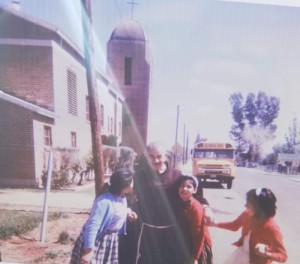
The faithful of Sacred Heart Parish, with the guidance of Franciscan Father Albert Braun, built their original parish church in the 1950s to serve their largely Hispanic community. In the mid 1980s the church and parish buildings — along with 6,000 surrounding residences of the Golden Gate Barrio — were taken through eminent domain for the expansion of Phoenix Sky Harbor Airport. With the exception of the historic church, all structures were demolished.
Through the efforts of many dedicated members of the community, the historic church was preserved and an annual Christmas Mass continued to be celebrated. In May 2018 the Phoenix City Council unanimously approved the reopening of the building as a consecrated Catholic Church according to the laws of the Roman Catholic Church. Recently, the lease with the City of Phoenix with FAA approval was finalized.
###
Media Contact
Robert DeFrancesco
Director of Communications
The Roman Catholic Diocese of Phoenix
rdefrancesco@dphx.org
(602) 354-2130
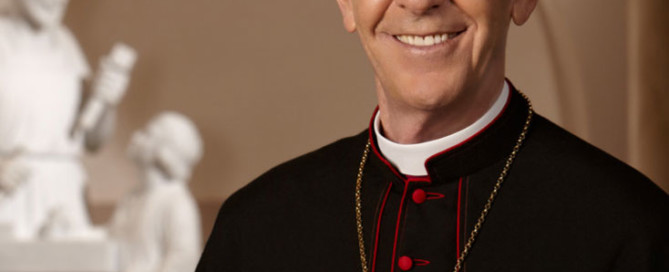 Statement from Bishop Olmsted on Pastoral Letter from Archbishop Cordileone Addressing the Human Dignity of the Unborn, Holy Communion and Catholics in Public Life Gallery
Statement from Bishop Olmsted on Pastoral Letter from Archbishop Cordileone Addressing the Human Dignity of the Unborn, Holy Communion and Catholics in Public Life GalleryStatement from Bishop Olmsted on Pastoral Letter from Archbishop Cordileone Addressing the Human Dignity of the Unborn, Holy Communion and Catholics in Public Life
Statement from Bishop Olmsted on Pastoral Letter from Archbishop Cordileone Addressing the Human Dignity of the Unborn, Holy Communion and Catholics in Public Life
Statement from Bishop Olmsted on Pastoral Letter from Archbishop Cordileone Addressing the Human Dignity of the Unborn, Holy Communion and Catholics in Public Life
May 6, 2021
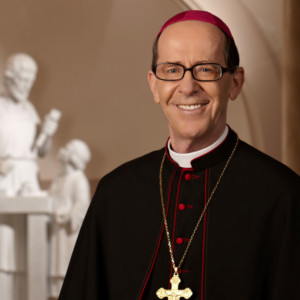
The Most Rev. Thomas J. Olmsted, Bishop of the Roman Catholic Diocese of Phoenix.
PHOENIX — The following statement is from the Most Rev. Thomas J. Olmsted, Bishop of the Roman Catholic Diocese of Phoenix, on San Francisco Archbishop Salvatore Cordileone’s pastoral letter, “Before I Formed You in the Womb I Knew You”:
In his Pastoral Letter, “Before I Formed You in the Womb I Knew You,” Archbishop Salvatore Cordileone offers a powerful defense of the Church’s teaching on the dignity of all human life, which logically and morally requires a consistent condemnation of abortion. I recommend the Letter highly to all the Catholic faithful of the Diocese of Phoenix, and all people of good will who desire to know why the Church cannot and will not change her traditional defense of motherhood and the most vulnerable in the womb.
As the Archbishop makes clear, the Church’s teaching on life is based on the principle of love in truth — this teaching is intrinsically connected to the social and moral doctrine that moves Catholics to serve the poor, fight for justice, and worship our loving God. Indeed, from the moment of fertilization in our mother’s womb, each of us is a bearer of His Holy Image, and thus the bearer of unalienable rights. There is no confusion in embryological science about the beginning of each human life, and it has been catastrophic for our nation that our laws have become divorced from this fundamental truth, protecting only some human beings and not others.
It is a false compassion that treats the killing of an innocent child in the womb as “help” for a mother in need. It is a false courage that condemns the sins of the past while the gravest evil of the present is treated as an “issue” of legitimate disagreement among Catholics. And it is a false patience and pastoral concern that, year after year, stays silent or speaks in abstractions while the slaughter continues with the full endorsement of Catholic politicians under our spiritual care as bishops. Such “patience” is false because it is bereft of love and truth, and thus unmasks rather a deadly apathy towards one who professes the Catholic faith but whose public embrace of abortion puts his or her eternal soul at risk of damnation, and risks dragging untold numbers into hell by their example.
No, abortion is not the “only issue,” but it is, as Pope Francis told my brother bishops, the “preeminent issue.” Woe to us bishops if we do not speak clearly about the grave evil of abortion, and the consequences of any Catholic who participates in the act or publicly supports it by word or action. As Archbishop Samuel Aquila of Denver put it in a recent and excellent article:
When the church minimizes the danger of an unworthy reception of the Eucharist, she fails to properly love those who continue to jeopardize their souls. Trading “civility” and “engagement” for eternal life is not a good trade, and it is especially negligent for me, as a bishop, to remain quiet when people I am called to love may be endangering their eternal souls. This is a danger to them and a danger to me.
I thank Archbishop Cordileone and Archbishop Aquila, as well as all my brother priests and bishops who voice their loving concern not only for unborn children and their parents, but for those who have been led to believe that they can publicly disagree with the Church on abortion while continuing to claim their Catholic Faith and receive Our Lord in the Most Blessed Sacrament. Therefore, it is an obligation and an act of love to proclaim and point out this truth in charity.
Bishops of the Arizona Catholic Conference Statement on Religious Accommodations for Dying Patients Legislation Being Signed into Law
Bishops of the Arizona Catholic Conference Statement on Religious Accommodations for Dying Patients Legislation Being Signed into Law
May 5, 2021 | PDF
The Bishops of the Arizona Catholic Conference (ACC) are grateful that Governor Doug Ducey has signed into law an important bill (HB 2575) improving religious accommodations for dying patients in hospitals.
During the pandemic, too many people have died without the spiritual assistance or sacraments desired at the end of their lives. Even now, there remain places where clergy are not able to have in-person visits that are requested by dying patients.
We are extremely grateful for the dedicated health care providers who have done so much to assist people in need over the course of the pandemic. After all, patients typically need both great care for their bodies as well as for their souls.
This new law is simple legislation that will allow clergy of all faiths to have in-person visitation in hospitals when requested by a patient and it is safe for any other visitor. By providing this spiritual care, it will give great benefit and comfort to both dying patients and their families.
Accordingly, we deeply appreciate Representative Quang Nguyen for sponsoring HB 2575 and Governor Doug Ducey for signing it into law!
Most Rev. Edward J. Weisenburger
Bishop of Tucson
Most Rev. Thomas J. Olmsted
Bishop of Phoenix
Most Rev. James S. Wall
Bishop of Gallup
Most Rev. Eduardo A. Nevares
Auxiliary Bishop of Phoenix
Most Rev. John S. Pazak
Bishop of Holy Protection of Mary Byzantine Catholic Eparchy of Phoenix
Declaración de los obispos de la Conferencia Católica de Arizona sobre las acomodaciones religiosas para pacientes moribundos que se está convirtiendo en ley
5 de mayo de 2021 | PDF
Los obispos de la Conferencia Católica de Arizona (ACC) agradecen al gobernador Doug Ducey por haber promulgado un proyecto de ley muy importante (HB 2575) que mejora las acomodaciones religiosas para pacientes moribundos en los hospitales.
Durante la pandemia, demasiadas personas han muerto sin la asistencia espiritual o los sacramentos deseados al final de sus vidas. Incluso ahora, quedan lugares donde los miembros del clero no pueden tener visitas en persona con los pacientes moribundos cuando se les solicita su presencia.
Estamos muy agradecidos con los dedicados proveedores de atención médica que han hecho tanto para ayudar a las personas necesitadas durante el transcurso de la pandemia. Después de todo, los pacientes necesitan de un gran cuidado tanto de su cuerpo como de su alma.
Esta nueva ley es una legislación simple que permitirá a los clérigos de todas las religiones tener visitas en persona en el hospital cuando lo solicite un paciente y sea seguro para cualquier otro visitante. Al proporcionar este cuidado espiritual, brindará un gran beneficio y consuelo tanto a los pacientes moribundos como a sus familias.
Por lo tanto, agradecemos profundamente al Representante Quang Nguyen por patrocinar el Proyecto de Ley HB 2575 y al Gobernador Doug Ducey por convertirla en ley.
Reverendísimo Edward J. Weisenburger
Obispo de Tucson
Reverendísimo Thomas J. Olmsted
Obispo de Phoenix
Reverendísimo James S. Wall
Obispo de Gallup
Reverendísimo Eduardo A. Nevares
Obispo Auxiliar de Phoenix
Reverendísimo John S. Pazak
Santa Protección de Maria Eparquía Bizantina Católica de Phoenix

